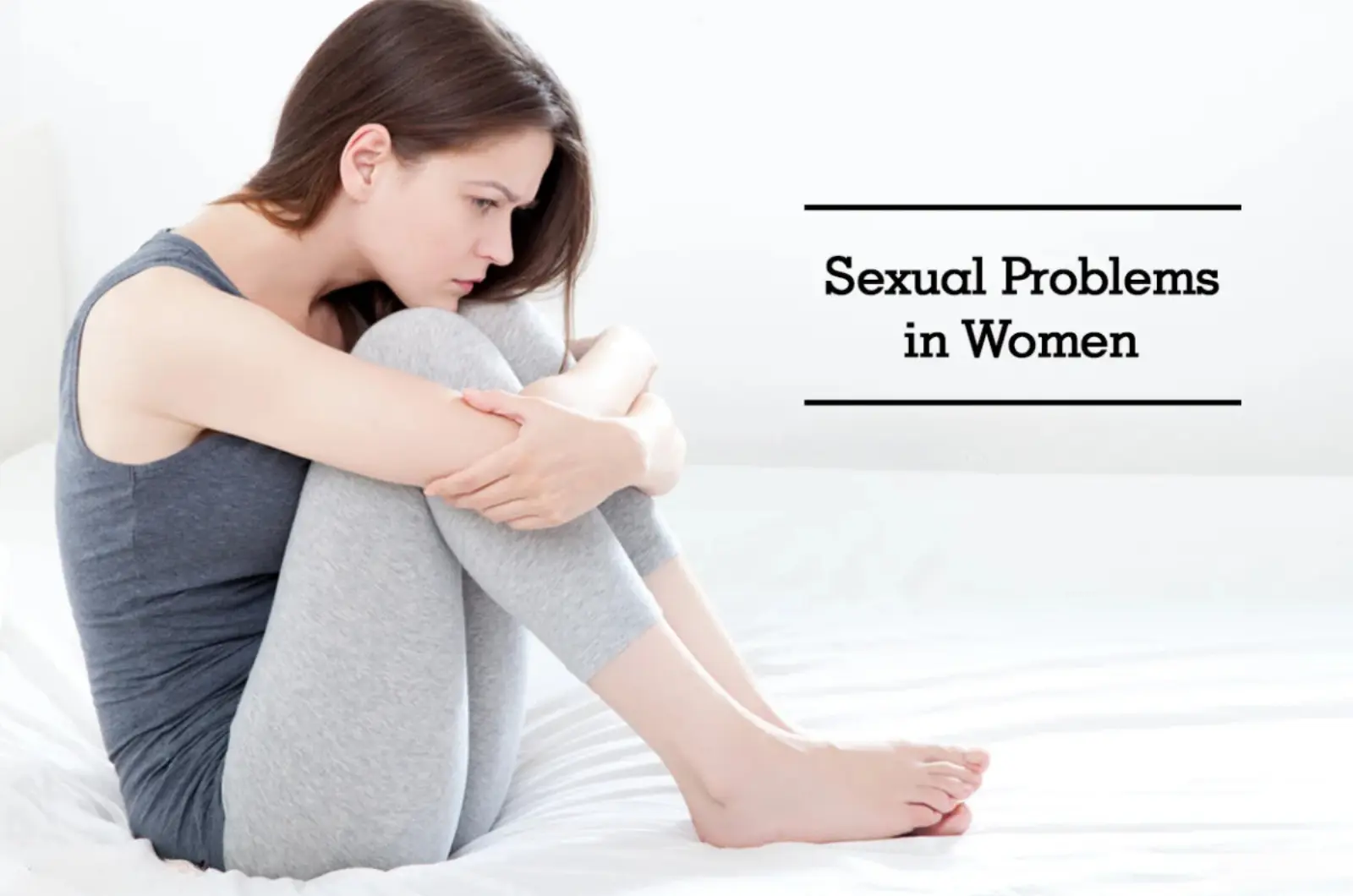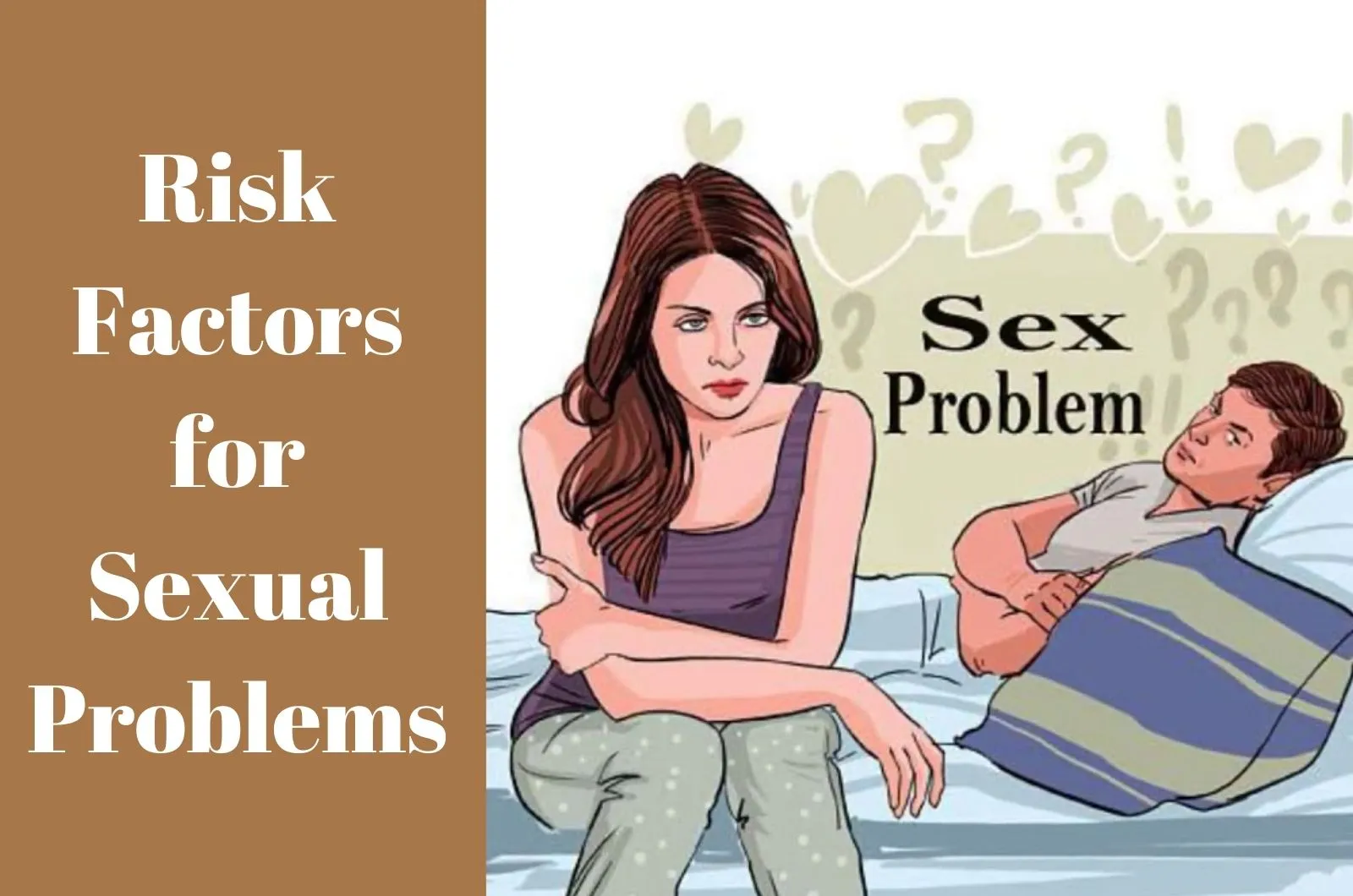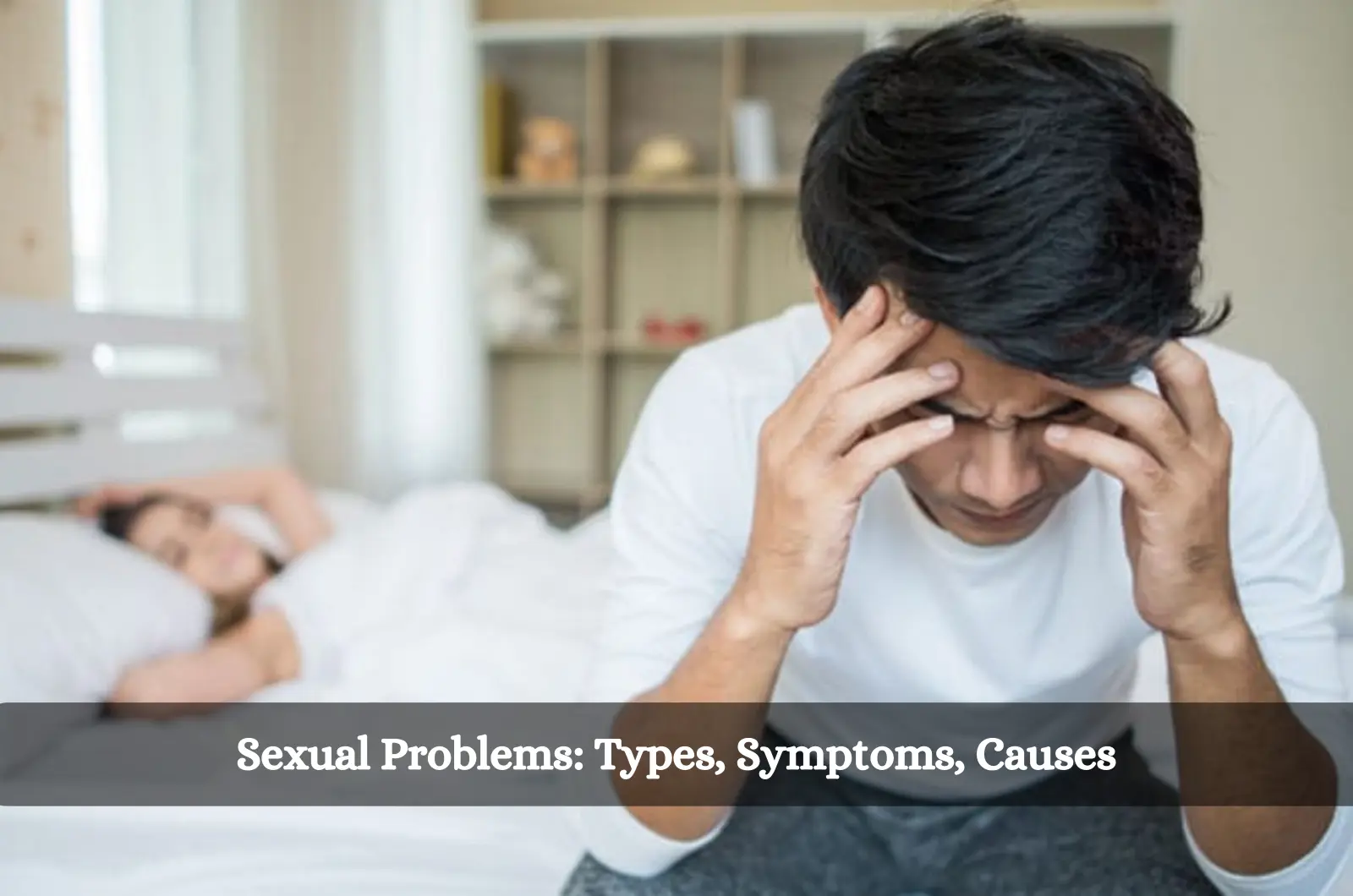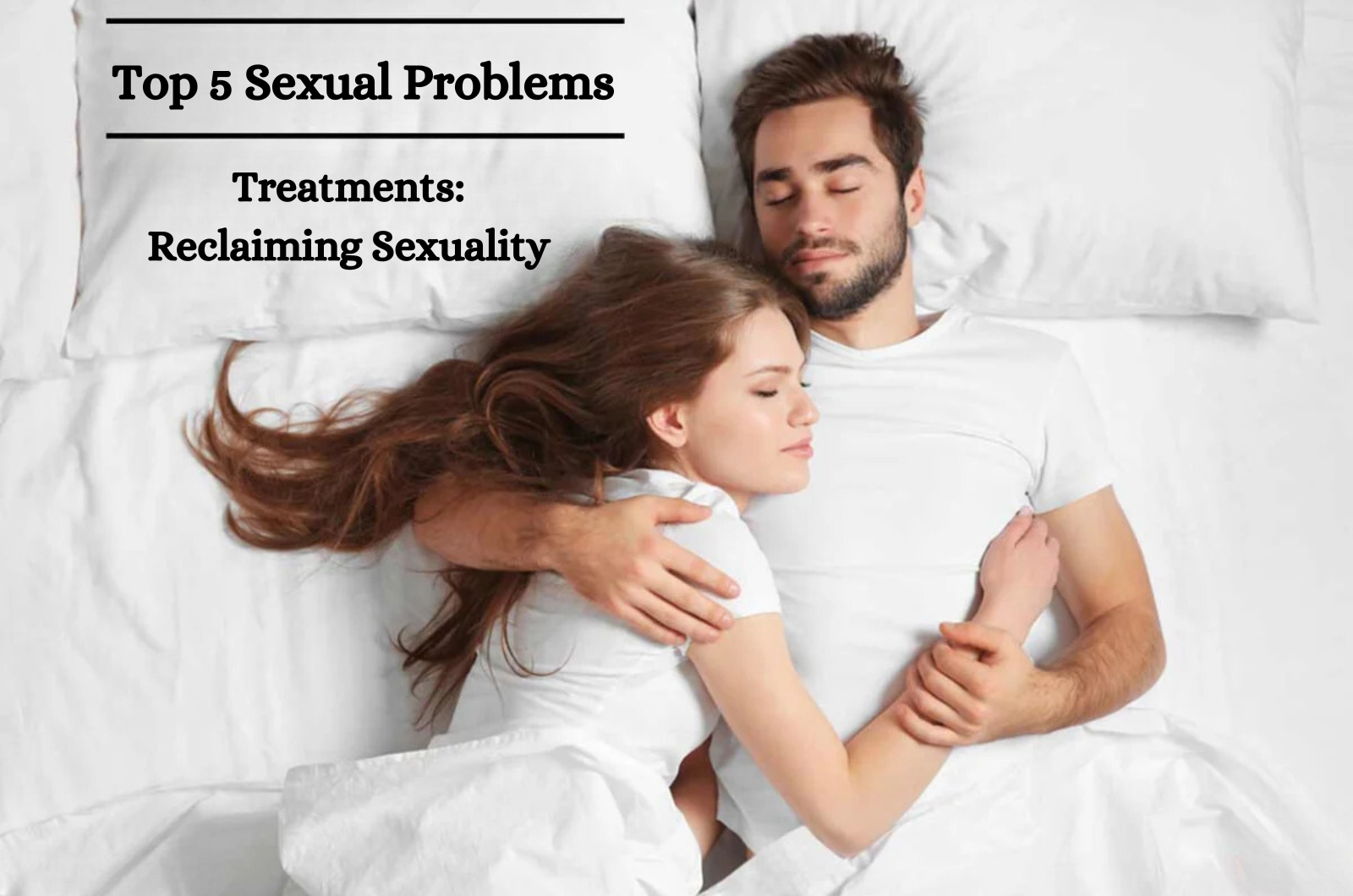Introduction
Sexual health is a vital aspect of overall well-being. Unfortunately, men and women can encounter various sexual problems that affect their relationships and self-esteem. In this blog post, we will delve into the ordinary sexual problems in men and women face, explore their root causes, and provide actionable tips for seeking solutions.
Sexual Problems in Men
Erectile Dysfunction (ED):
Erectile Dysfunction, commonly known as ED, is the inability to achieve or maintain an erection during sexual activity. To address this issue:
Consult a healthcare professional to identify any underlying health conditions.
Consider lifestyle changes, such as regular exercise and a balanced diet.
Explore medical interventions like medications or vacuum erection devices.
- One of the most common sexual issues in men is erectile dysfunction or ED. ED is when a man can’t get or keep an erection firm enough for sexual action.
- Premature Ejaculation (PE): PE involves ejaculation that occurs too quickly, often before or shortly after penetration, leading to unsatisfactory sexual experiences.
- Low Libido: Decreased sexual desire can be caused by stress, hormonal imbalances, or certain medications.
- Delayed Ejaculation: Some men experience difficulty ejaculating, which can be frustrating and may stem from psychological or physiological issues.
- Performance Anxiety: Fear of performance failure during sexual encounters can exacerbate sexual problems and lead to a cycle of anxiety.
- Peyronie’s Disease: This condition causes the penis to curve abnormally, potentially resulting in pain and difficulties during intercourse.
- Lack of Sexual Confidence: Insecurity about sexual performance or body image can negatively impact sexual experiences.
- Abusing drugs or alcohol: Too much of either can cause sexual problems.
- Relationship Issues: Conflicts, communication problems, or emotional distance from partners can affect sexual intimacy.
- Stress and Fatigue: Having a lot of stress and being tired can make it harder to want and do sexual things.
- Medical Conditions: Underlying health issues such as diabetes, heart disease, or neurological disorders can affect sexual health.
- Side Effects of Medications: Some medications can adversely affect sexual performance and desire.
- Lack of Knowledge: Limited sexual education and misconceptions about sexuality can hinder sexual well-being.
- Age-related Changes: As men age, they may experience changes in sexual function due to hormonal shifts and other factors.
- Pornography Addiction: Excessive consumption of pornography can lead to unrealistic expectations and difficulties with real-life sexual experiences.
Premature Ejaculation:
Premature ejaculation is characterized by uncontrolled ejaculation shortly after sexual penetration. Men can manage this problem by:
Trying techniques like the “stop-start” method during intercourse.
Engaging in mindfulness exercises to reduce anxiety.
Utilizing numbing creams or condoms to delay ejaculation.
Low testosterone:
When a man’s libido is low, he doesn’t want to do sexual things. Increasing libido means: Using relaxation methods to deal with stress and anxiety.
Getting daily exercise can help boost testosterone levels.
Openly talking to your partner about any problems in your relationship.

Sexual Problems in Women
1. Female Sexual Dysfunction (FSD):
Female Sexual Dysfunction includes problems like not being sexually aroused, having trouble getting an orgasm, or feeling pain during sex. Women can deal with FSD by Talking to a healthcare source to rule out any medical problems.
I am doing pelvic floor routines to strengthen muscles.
We are using lubricants to ease pain during sexual activity.
- Low libido: Many women experience decreased sexual desire, which hormonal changes, stress, or relationship issues can influence.
- Dyspareunia: Dyspareunia, or pain or discomfort during sex, can result from various conditions, including infections, vaginal dryness, or emotional issues.
- Vaginal dryness: A lack of natural lubrication can make intercourse uncomfortable and is often associated with menopause or certain medications.
- Orgasm difficulties: Some women find it challenging to achieve orgasm due to physical or psychological factors like anxiety or past trauma.
- Sexual anxiety: Performance anxiety or fear of intimacy can hinder sexual satisfaction and enjoyment.
- Lack of arousal: Difficulty in becoming sexually aroused can result from stress, fatigue, or underlying health conditions.
- Sexual trauma: Past experiences of sexual abuse or assault can significantly impact a woman’s sexual well-being.
- Body image issues: Negative body image can lead to decreased confidence and reduced sexual satisfaction.
- Menopause-related changes: Hormonal shifts during menopause can cause various sexual problems like hot flashes and reduced sensitivity.
- Relationship problems: Conflicts or communication issues can affect sexual intimacy.
- Medical conditions: Certain conditions like diabetes, endometriosis, or thyroid disorders may contribute to sexual difficulties.
- Medication side effects: Some medications can affect sexual desire and function as an unintended side effect.
- Lack of knowledge: Insufficient sexual education can lead to misconceptions and unrealistic expectations about sexuality.
- Age-related changes: Aging can bring physical changes that may impact sexual health and functioning.
- Cultural and societal influences: Societal norms and taboos around sex can contribute to feelings of guilt or shame, affecting sexual experiences.
2. Painful Intercourse:
Various factors can cause pain during intercourse. Women can find relief by:
They are communicating with their partners about discomfort to ensure understanding.
You are engaging in more extended foreplay to increase arousal and natural lubrication.
I am consulting a healthcare professional to identify any underlying medical conditions.
3. Low Sexual Desire:
Women often have strong desires to be sexual. Try new hobbies or fantasies that make you feel excited again to increase your libido.
Focus on self-care and reducing stress to improve your health as a whole.
Think about counselling or therapy to deal with mental issues.
Tips for Sexual Wellness
Communication in Relationships:
Openly discuss sexual concerns and desires with partners to foster understanding and intimacy.
| Aspect of Sexual Wellness | Tips |
|---|---|
| Communication | Openly communicate with your partner about desires, boundaries, and concerns. Create a safe and non-judgmental space for discussions. |
| Consent | The aspect of Sexual Wellness |
| Protection | Practice safe sex by using condoms and other barrier methods to prevent sexually transmitted infections (STIs) and unintended pregnancies. |
| Regular Check-ups | Schedule regular sexual health check-ups and screenings for STIs to ensure your sexual health is in good condition. |
| Emotional Connection | Always seek clear and enthusiastic consent before engaging in any sexual activity. Consent should be ongoing and can be withdrawn at any time. |
| Education | Educate yourself and your partner about sexual health, anatomy, and contraception to make informed decisions. |
| Lubrication | Use water-based lubricants to reduce discomfort and enhance pleasure during sexual activities. |
| Stress Management | Manage stress through healthy coping mechanisms, as stress can impact libido and sexual function. |
| Body Positivity | Embrace body positivity and body confidence, as it can improve self-esteem and sexual confidence. |
| Mindfulness | Practice mindfulness during sexual activities to enhance the connection and enjoyment of the present moment. |
| Variety | Explore and experiment with different sexual activities and fantasies to keep the spark alive in your relationship. |
| Boundaries | Respect each other’s boundaries and communicate them clearly to ensure a positive and consensual sexual experience. |
| Seeking Help | If you encounter sexual challenges or concerns, don’t hesitate to seek professional help from a therapist or counselor. |
Healthy Lifestyle Habits:
Prioritize physical and emotional well-being by adopting healthy habits that positively impact sexual health.
Openness to Seek Professional Help:
Do not hesitate to seek guidance from healthcare professionals or therapists when facing sexual challenges.
Causes of Sexual Problems:
Treatments for Sexual Problems:
FAQ’s Sexual Problems in Men and Women
Ques:- Can stress and anxiety contribute to sexual problems?
Ans:- Stress and anxiety can play a significant role in causing sexual issues in both men and women. High-stress levels can lead to reduced libido and difficulties achieving or maintaining arousal.
Ques:- Are sexual problems a normal part of aging?
Ans:- While some changes in sexual function may occur with age, experiencing persistent sexual problems is not considered a normal part of ageing. These issues should be addressed and discussed with a healthcare professional.
Ques:- Can medications cause sexual problems?
Ans:- Certain medications, such as antidepressants and blood pressure medications, can have side effects that may contribute to sexual problems. It’s essential to discuss any concerns with your healthcare provider.
Ques:- Is sexual therapy effective in treating sexual problems?
Ans:- Sexual treatment, counseling, and psychotherapy can effectively address sexual issues, especially those with psychological or emotional roots.
Ques:- When should I seek professional help for sexual problems?
Ans:- Suppose you or your partner are experiencing persistent sexual difficulties that cause distress or impact your relationship. In that case, it is essential to seek professional help from a qualified healthcare provider or sexual health specialist.
Conclusion:
Addressing sexual problems in men and women is vital for maintaining healthy relationships and well-being. By understanding the causes and implementing appropriate solutions, individuals can enhance their sexual health and foster satisfying connections with their partners. Remember that getting professional help is a sign of strength, and effective treatments are available for those experiencing sexual issues.




